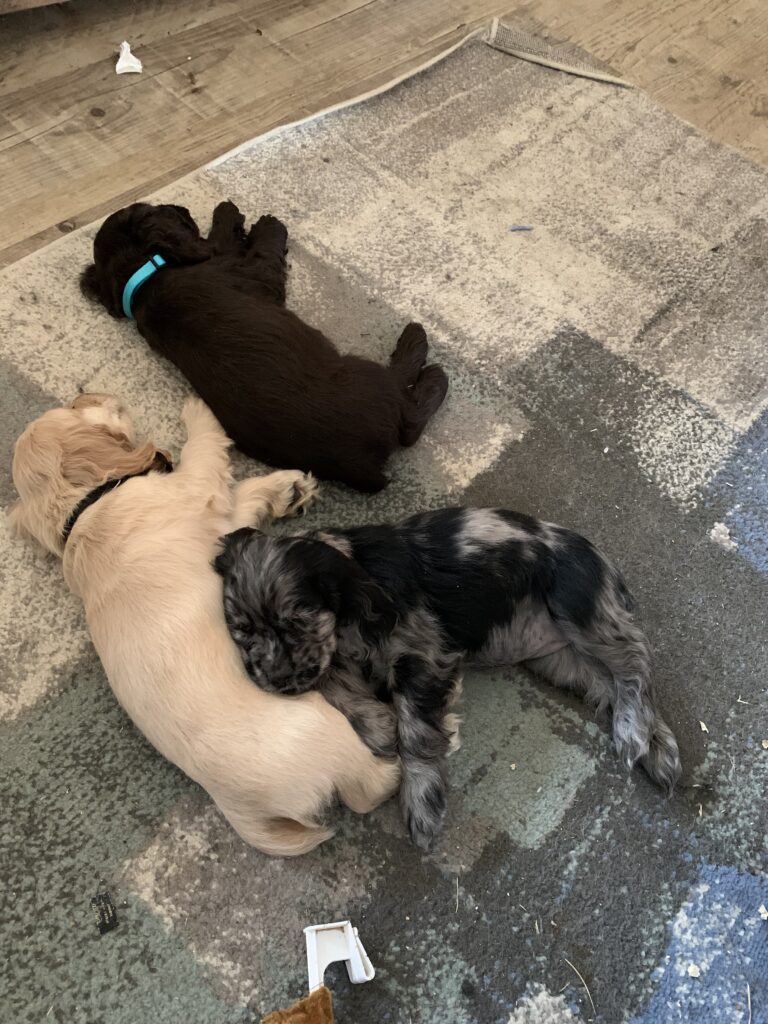
Philosophies of training means literally taking your Spaniel by the tail. My parents always said, “If you don’t want your kids doing something when they are 10, don’t allow them to do it when they are 2.”
If you allow something that is naughty but oh so cute or funny when your puppy is little, they will continue to do it as an adult when it is no longer cute or funny.
Philosophies of training begin when you bring your puppy home. Do you have an idea of how you want to raise your puppy? What things are acceptable to you?
Some people allow their dogs to sleep with, sit on the furniture, and eat at the dining room table. Others don’t allow any of those things. The most important thing is to know what behaviors you want and start setting boundaries and teaching those things right away.
Puppies, just like children, go through phases and levels of understanding. When you bring your puppy home, the most important thing to do is bond with them.
Introduce them to your children and grandchildren in a way that is safe for all and creates positive interactions from day one. If you don’t have children or grandchildren, find some! Adopt some to spend some time with on a regular basis for your puppy’s sake!
Puppies and children naturally go together but need close supervision so it remains a positive experience.
Like children, puppies don’t come potty trained or any trained for that matter. Unless you’ve chosen an older dog, all that training is up to you.
The easiest way I have found to potty train, obedience train and manner train is with schedule and consistency. The more consistent I can be, the less time it takes to teach.
Puppies need a firm but gentle hand. Corporal punishment does NOT give you the results you want. Punishment often results in fear, timidity, confusion and in some cases, even aggression.
Our Spaniels are especially sensitive to our moods and our actions. Positive reinforcement and distraction or re-direction work best.
Stay tuned for more information about training your Spaniel!